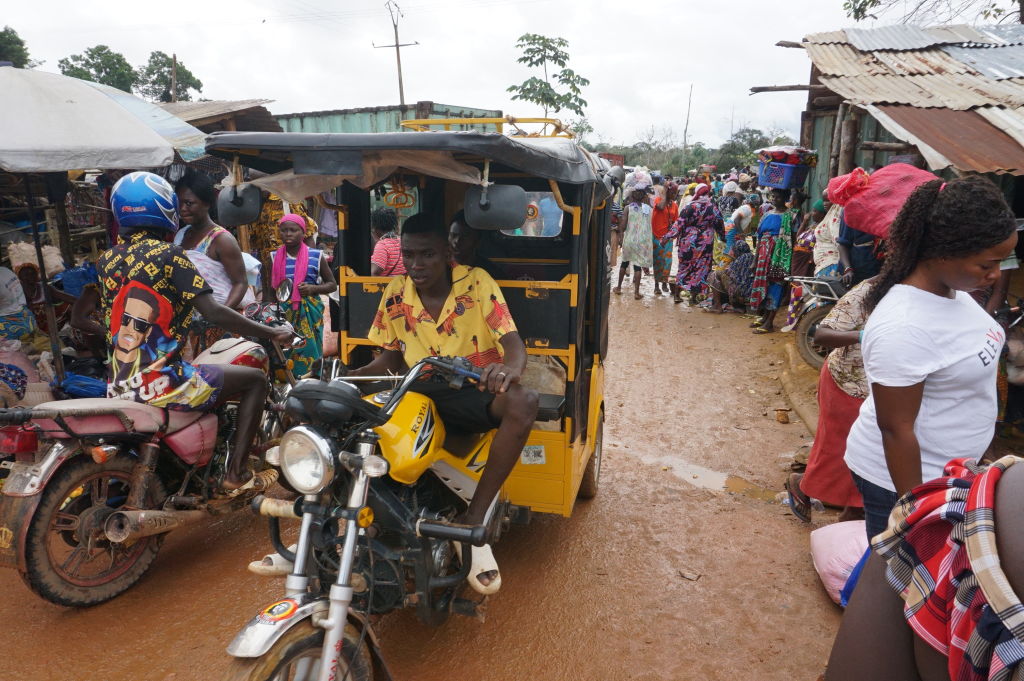ADF STAFF
As terrorism spreads south from the Sahel toward the Gulf of Guinea, Ghana stands out among its neighbors for its lack of attacks. But experts are warning that the country might be living on borrowed time.
Professor Emmanuel Kwesi Aning, director of faculty of academic affairs and research at the Ghana-based Kofi Anan International Peacekeeping Training Centre, toured all of Ghana’s border posts as part of a research project on behalf of the United Nations. He found “a dire picture of unpreparedness” in the regions bordering Burkina Faso, which has become a source of terrorism spreading to its neighbors to the south.
“When you go to the border posts, you see both customs and immigration,” Aning told ADF in an interview. “But that does not mean that they are prepared for a terrorist attack.”
The government has been slow to provide equipment such as scanners capable of detecting contraband in the dozens of trucks that cross the border every day, Aning said.
“When I talk about zero preparedness, I’m not talking about the levels of training and willingness to respond where they are equipped,” Aning said.
At a few checkpoints, security software identifies suspected terrorists and uncovers concealed material that could be used in attacks. Some security forces go undercover to develop intelligence about potential terrorist acts, according to a report by Paa Kwesi Wolseley Prah published in The International Journal of Intelligence, Security, and Public Affairs.
“That does not detract from the fact that the border officials themselves are well trained. They are capable,” Aning told ADF. “But they are working in an environment that is hostile, with little capacity to prevent and degrade (the terrorist threat).”
Local residents often see security officials working on the border as outsiders, he said.
Aning’s experience runs counter to recent government initiatives, such as the “See Something, Say Something” campaign, which urges citizens to report suspicious or potentially terrorist-related acts to security forces.
According to a report by the Konrad Adenauer Foundation, Ghana has taken other measures to respond to the terrorist threat. It has:
- Reorganized the northern regions to improve security operations.
- Launched programs to boost the economy in the north, where unemployment is high, particularly among young men, whom terrorists often target for recruitment.
- Promoted regional counterterrorism collaboration through the Accra Initiative, an effort among member states Benin, Burkina Faso, Cote d’Ivoire, Ghana and Togo to prevent Sahel-based terrorism from spilling into other countries.
Recently, Sahelian terrorist groups recruited several hundred Ghanaians and sent them back to Ghana to proselytize, according to reports.
“We are yet to see the full force of the state to come with measures against that,” Mutaru Mumuni Muqthar, executive director of the West Africa Centre for Counter-Extremism, told Ghana’s JoyNews AM Show. “We’ve been ambushed by time.”
The Konrad Adenauer Foundation analysis suggests one reason Ghana has avoided terrorist attacks so far: The country has become a staging ground and transit point for terrorists operating in neighboring countries.
A February report to the United Nations Security Council said terrorists have established warehouses in Benin, Ghana and Togo.
Ghana’s porous borders have become a major obstacle to preventing an attack, according to Adib Saani, executive director of the Jatikay Centre for Human Security and Peace Building.
Although there are 44 official border crossings with Burkina Faso, there are nearly 190 illegal crossing points, he noted.
“Our border security is a major issue,” Saani said told JoyNews. “Our security services are doing a lot, but it’s not enough.”
Saani and Aning said the government must go beyond a military response to the terrorist threat. Aning said part of the solution is “jobs, jobs, jobs.”

